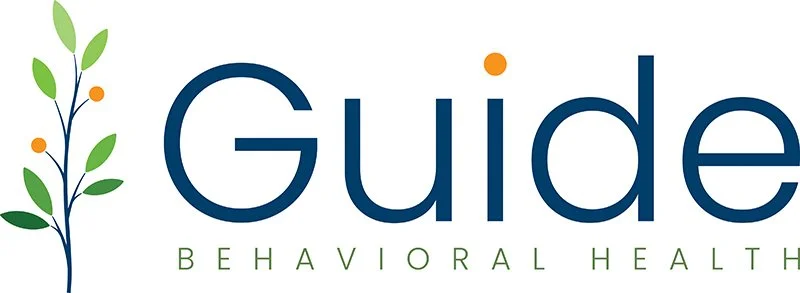Teen OCD Treatment in Menlo Park
Helping teens in Menlo Park, Palo Alto, and San Mateo County manage OCD symptoms and regain control of their lives.
Or Call 650-507-3888
Understanding Teen OCD
Obsessive-compulsive disorder (OCD) is more than habits or worries — it can cause intense anxiety and interfere with daily routines. Teens with OCD often experience unwanted thoughts (obsessions) and feel compelled to perform repetitive behaviors (compulsions) to ease distress. Over time, these cycles can impact school performance, relationships, and emotional well-being.
Common Signs of OCD in Teens
Recognizing OCD symptoms early helps families find the right level of care. Signs may include:
Excessive time spent checking, washing, or repeating certain actions
Distress when routines are disrupted or things don’t feel “right”
Avoiding school, social situations, or triggers that cause anxiety
Persistent intrusive thoughts or worries
Constant reassurance-seeking or mental rituals
Many teens hide their symptoms out of embarrassment or confusion. Compassionate, structured care can help them regain a sense of balance and control.
How We Support Teens with OCD at Guide Behavioral Health
At Guide Behavioral Health, we provide outpatient care for teens whose OCD symptoms occur alongside anxiety, depression, or other emotional challenges. Our evidence-based programs focus on building resilience, improving emotional regulation, and reducing anxiety-driven behaviors through therapy and skills training.
Our licensed clinicians use approaches grounded in:
Cognitive Behavioral Therapy (CBT) — helping teens understand and change unhelpful thought patterns.
Mindfulness and Distress Tolerance Skills — teaching awareness and coping strategies for intrusive thoughts.
Family Support and Communication Skills — helping parents and teens navigate the challenges of OCD together.
While we do not offer specialized ERP therapy or treatment for severe OCD, our programs can provide meaningful support for teens managing symptoms within a broader mental health context.
Teen OCD Treatment Programs
We offer two levels of care for teens needing structured support:
Intensive Outpatient Program (IOP)
After-school program (4–7 PM, Monday–Thursday) combining group therapy, skills sessions, and individualized clinical support.
Partial Hospitalization Program (PHP)
Daytime program (11 AM–4 PM, Monday–Friday) providing a higher level of care for teens who need more daily structure and therapeutic support.
Both programs help teens strengthen coping skills, manage anxiety, and stay connected to school and family life.
Serving Families Across the Peninsula
Our Menlo Park center serves families in: Menlo Park • Palo Alto • Redwood City • Los Altos • Mountain View • San Mateo County
Guide Behavioral Health is proud to provide trusted, evidence-based care for teens ages 12–17 throughout the Bay Area.
Helping Teens Find Balance and Confidence
OCD-related anxiety can be overwhelming — but your teen doesn’t have to face it alone. Our outpatient programs help teens learn practical coping tools, reduce stress, and build confidence at home and school.
FAQ: Answers to Common Questions About Teen OCD Treatment
-
Obsessive-compulsive disorder, or OCD, involves persistent, intrusive thoughts (obsessions) and repetitive behaviors (compulsions) meant to reduce anxiety. It’s not just about liking things tidy. Teens with OCD may feel driven to perform rituals like checking, counting, or hand-washing to feel safe or “just right.” Learn more about how we treat OCD using CBT and ERP on our therapy methods page.
-
The gold standard for treating OCD is exposure and response prevention (ERP), often combined with cognitive behavioral therapy (CBT). ERP helps teens gradually face their fears while resisting compulsive behaviors. CBT teaches them to reframe anxious thoughts. At Guide Behavioral Health, we specialize in these evidence-based approaches. Learn more about how we treat teens in our intensive outpatient program.
-
Everyone has routines and preferences, but OCD goes further. If your teen’s thoughts or behaviors are causing them distress, taking up a lot of time, or interfering with school, friendships, or sleep, it may be more than just a quirk. Our team can help assess whether your teen is dealing with OCD or something else. Visit our get started page to schedule a consultation.
-
Yes. Our Menlo Park location serves families throughout San Mateo County, including Palo Alto, Redwood City, Foster City, and beyond. Teens receive expert, evidence-based care in a supportive outpatient setting. Learn more about our San Mateo County and Menlo Park locations.
-
Not always. Many teens improve significantly through therapy alone, especially with ERP and CBT. In more severe cases, medication can help reduce symptoms enough to make therapy more effective. Our medical team will talk with you about what’s right for your teen. If you’re unsure where to start, visit our treatment options page to explore how we personalize care.
-
Every teen is different, but many begin to see changes within a few weeks of consistent treatment. Our programs are designed to provide the right level of support at the right pace—whether through PHP, IOP, or after-school interventions. Visit our PHP and IOP pages to learn more about which option might be right for your family.
-
It starts with a conversation. Visit our get started page to fill out the consultation form or call us at 650-507-3888. We’ll guide you through the intake process and help determine the best level of care for your teen.


